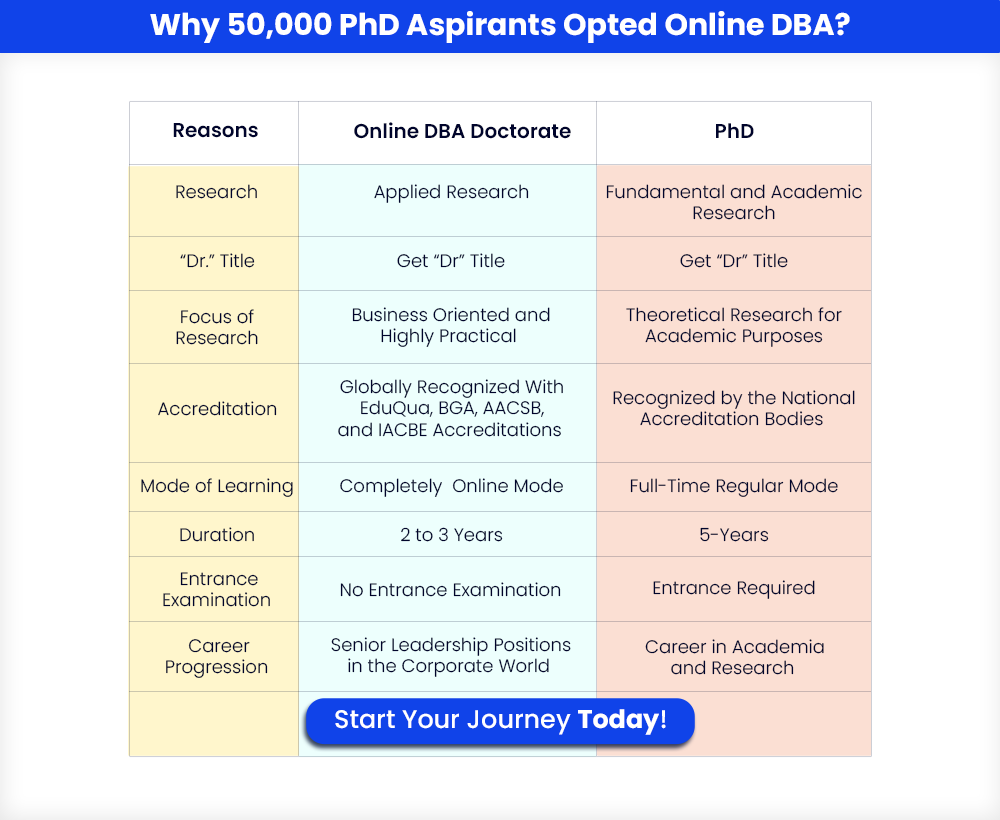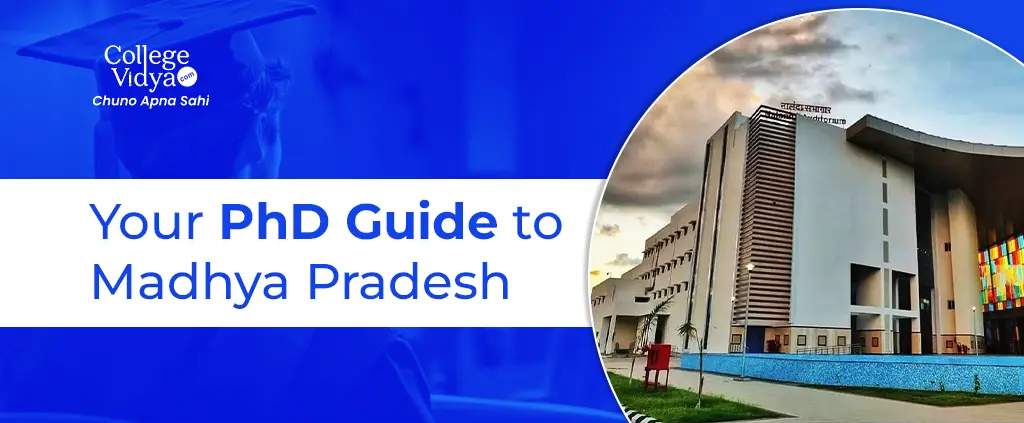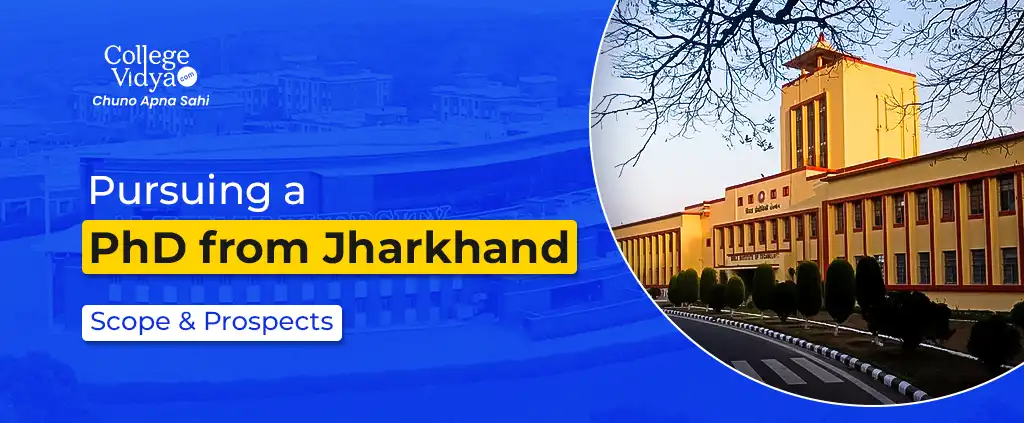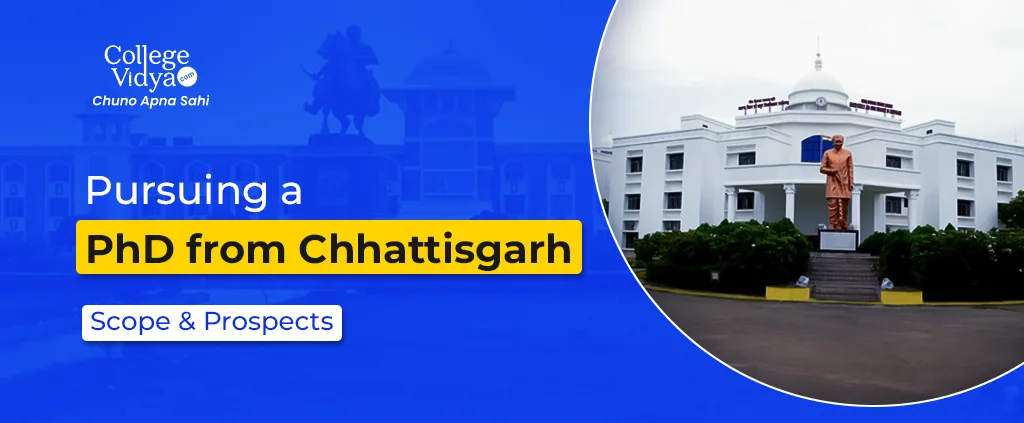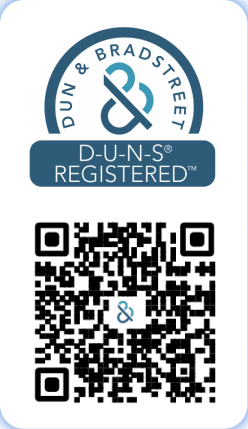Pursuing a PhD is as much a test of resilience and curiosity as it is of resourcefulness. Securing Financing is one of the most important and at times intimidating steps for any potential doctoral student. Regardless of whether you are merely beginning to think about this journey or if you are already in the thick of applications, having a good understanding of the nature of PhD funding can be life-changing for your academic path. The PhD fund that a student will receive will start from 31,000 INR, and the amount also depends on the scholarship and fellowship type.
However, if you want to grab the highest-paying job and a higher position, then you can pursue an online DBA (Doctorate of Business Administration). This program is equivalent to a PhD, and you will get the Dr. title after the completion of the DBA. This course is not available in India, but there are various prestigious foreign universities that offer this program, which will be valid in India and other countries.
In this blog, we will dive into the types of funding available, major national/international schemes, common issues, and tips for securing a fully funded doctoral journey either in India or abroad.
What is PhD Funding?
The term PhD funding, refers to the financial support provided to students and firms pursuing a doctoral degree. It may cover tuition fees, living expenses, research costs, and sometimes costs for travel or conferences as well. The amount of funding depedends the type of scholarship or fellowship they received.
Who Funds PhDs?
There are various sources that funding for PhD for the students that are highlighted below:
- Government Bodies
- Universities
- Independent Charities and Trusts
- Business and Industry
- Student Finance
Know the Types of PhD Funding
Most doctoral students will receive funding from one or more of the following sources:
- Scholarships: Scholarships are usually merit-based and provide a student with funds to cover tuition and sometimes even part of their living expenses. Scholarships may be offered through universities, governments, or private entities. Examples of scholarships include Fulbright-Nehru Doctoral Research Fellowships, Rhodes Scholarships.
- Fellowships: Fellowships tend to be very competitive and are normally based on merit. Fellowships can be discipline-specific, linked to specific fields, or targeted for under-/overrepresented populations or areas of research. Students may be provided a stipend, and depending on the funding, will or will not have tuition removal. Fellowships may be provided by governments, foundations, or corporations. Examples are INSPIRE Fellowship (India), Google PhD Fellowships, and Ford Foundation Fellowships.
- Assistantships: Assistantships can be either research (RA) or teaching (TA) assistantships and are usually granted with a stipend (and sometimes a tuition waiver) in exchange for students providing services, either by assisting in the RA work or delivering TA work. Assistantships are typically used to provide stipends and/or tuition removal in STEM, but they are now being used to cover a wide range of social sciences and humanities disciplines.
- Studentships: Studentships are similar to fellowships; however, students are normally determined based on a specific project. Studentship funding will be project funding; students can be selected based on merit (normally for studentship) or selected based on gender or gender diversity to lead the project based on merit.
- Grants: Grants can be a funding mechanism that can be expended for research-related expenses associated with doctoral employment, such as fieldwork, attending conferences, and workshops. Grants are issued by academic societies, NGOs, and government organizations.
- Loans and self-funding: In some parts of the world (e.g., UK), loans are a last resort route to funding their doctoral studies. In other parts of the world, some students can pull loans but see it as a VPII plateau option, meaning they have to have the funding available and may dabble in it. Other students may dig into their savings or may be able to have part-time work associated with the program.
However, the PhD funding will be offered to the students who have passed the UGC-Net, which is quite different because there are large numbers of students who pursue this program. But you can go for an online DBA that is also equivalent to a PhD. One of the best parts of doing it is that you will get a mentor who will guide you through the program.
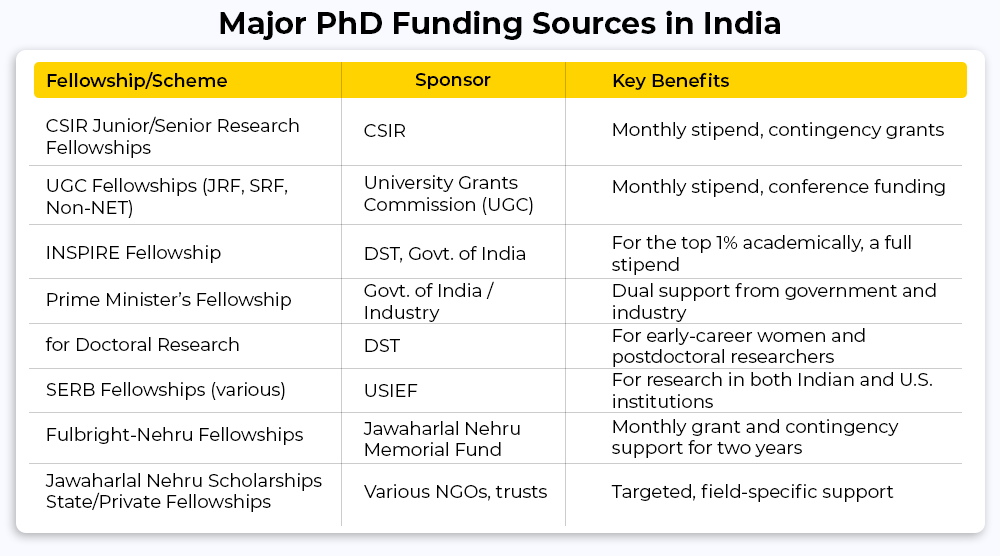
What Amount do You Receive in a PhD Funding?
The amount you will receive while doing a PhD as a Scholarship or Fellowship will vary depending on the. However, here is the list of some fellowships with amounts for reference.
|
Fellowship/Scheme |
Amount (Average INR) |
|
CSIR Junior/Senior Research Fellowships |
37,000 to 42,000(Montly) |
|
UGC Fellowship (JRF, SRF, Non-NET) |
42,000(Monthly) |
|
INSPIRE Fellowship |
1,25,000,(Per Year) |
|
Prime Minister’s Fellowship for Doctoral Research |
70,000(Monthly) |
|
SERB Fellowships (various) |
1,35,000(Yearly) |
|
Jawaharlal Nehru Scholarships |
1,00,000(Yearly) |
|
State/Private Fellowships |
20,000(Monthly) |
Major PhD Funding Sources By Different Countries
1. United States: Most U.S. PhD programs in STEM and many social sciences/humanities provide full fundingtuition remission, plus a living stipend upon admission. Funding may combine teaching assistantships, research assistantships, and fellowships.
Notable external fellowships include:
- NSF Graduate Research Fellowships
- NIH Predoctoral Fellowships
- Ford Foundation Fellowships
- Gates Millennium Scholarships.
2. United Kingdom
Doctoral students in the UK may access:
UK Research Council Studentships (e.g., AHRC, EPSRC)
- University and college scholarships
- Charity/industry funding (Wellcome Trust, Cancer Research UK)
- Commonwealth Scholarships (for select international students)
- Doctoral loans (for partial self-funding)
3. Europe
Continental Europe (e.g., Germany, France, the Netherlands) heavily relies on state-funded scholarships and research assistantships, often administered through national agencies.
- DAAD Scholarships (Germany)
- Marie SkłodowskaCurie Actions (EU WIDE)
- Government/University fellowships
Some countries treat PhD students as employees, granting them higher stipends and social protections.
How to Find and Secure PhD Funding
- Start with University Funding: Most institutions list funded PhD projects and internal scholarships on their graduate admissions pages. STEM fields frequently advertise such positions; humanities and social sciences may require matching a proposed project with a suitable supervisor and identifying separate funding.
- Proactive Supervisor Engagement: Maintaining direct contact with a potential supervisor can lead to not only project-specific studentships but also opportunities to tap into soft money (departmental or supervisor's research grants), which are sometimes not advertised publicly.
- Apply Early and Widely: Most fellowships and scholarships are highly competitive, with rigid deadlines.
Prepare all required documents (research proposal, CV, statement of purpose, references) well in advance.
- Layer Multiple Funding Sources: If you do not secure full funding, combine partial scholarships, small research grants, and university fee waivers. Even industry partnerships may bolster funding for fieldwork or equipment.
- Leverage External Fellowships: Apply for fellowships from government agencies, philanthropic foundations, and professional societies. Some popular schemes require a nomination from your university.
- Alternative Funding: Part-time work, tutoring, or consulting may be necessary in areas where stipends fall below living costs.
Crowdfunding or loans are rarely recommended, but can be a fallback for unfunded years.
What is the importance of PhD Funding?
Doctoral research requires a long-term commitment of time, 3 to 6+ years, of undistracted time; a sustained source of funding allows a more focused commitment to your research and gives access to training, conferences, and collaboration opportunities. Access to strong funding options has never been so important, given the rising tuition fees and living costs at universities all over the world.
Tips to Get the PhD Funding
- Research Extensively: Start exploring funding opportunities a year before your intended start date.
- Customize Your Application: Tailor each application to the requirements and values of the funding agency.
- Build Your CV: Early participation in research, publications, and academic networking strengthens your application.
- Seek Guidance: Leverage your networkfaculty, current PhD students, and alumni are invaluable guides.
- Backup Plans: Have a realistic fallback in case of partial funding, such as teaching, side projects, or phased self-funding.
Beyond Money: What to Look for in a Funding Offer
- Length and Site: Is funding assured for the entire PhD period?
- Progress Requirements: Are there conditions on annual review or progress as a researcher?
- Benefits: Does the package offer research, travel, or health insurance benefits?
- Flexibility: Are you able to do outside work, but also position fieldwork outside of Canada?
- Renewal: Can the fellowship be extended on merit or need?
Things to Consider
Can international students get full funding?
Yes, especially in countries like the US, UK, Germany, and Australia, full funding is regularly extended to top international candidates in STEM fields and increasingly in the humanities too.
What are the usual timelines for funding deadlines?
Most large scholarships open their calls 6–12 months before enrollment. Plan your calendar accordingly to meet internal and external deadlines.
Can I change fields or departments if I win a fellowship?
Usually, fellowships must be used at the host institution or for the approved project, but some allow field changes before enrollment (rare once started).
Think about self-funding
Self-funding is possible but risky; avoid it unless you can combine part-time work or phased enrollment. Consider whether living costs, fees, and the lack of a safety net might jeopardize completion.
Funding as a Foundation
Securing PhD funding may be challenging and competitive, but it is by no means impossible. Robust preparation, networking, determination, and awareness of all available resources can greatly enhance your chances. Remember, most doctoral success stories begin with a fellowship or assistantship. They are built on persistence and creativity. Dream big, but plan strategically, and the right funding can propel you toward your scholarly ambitions.
The Rise of the Online DBA: Transforming Leadership in Business
Higher education is changing radically in the digital age, opening up advanced degree opportunities across different fields that previously would have been impossible. One of the most popular credentials for senior business personnel is the Doctorate of Business Administration (DBA). Online DBA programs provide a flexible, practical, and widely recognized option for prospective doctoral students who want to develop and build on it without stepping away from their profession.
An Online DBA: A Game Changer for Career
An online DBA program is a doctoral-level program for experienced professionals who want to enhance their skills in areas like business leadership, strategic management, and academic research. It is not the same as the traditional PhD; the DBA is focused on using research to solve actual business problems, making it the doctorate of choice for executives, consultants, and senior managers.
- Duration: 2–3 years
- Format: Primarily asynchronous online coursework, occasional virtual seminars, and a dissertation or research project
- Specializations: Finance, Marketing, Leadership and Strategy, Business Analytics, and more
Advantages of Choosing an Online DBA
- Flexibility for Working Adults
- You can learn at your own pace and anywhere in the world
- You can combine your studies with a full-time job and family obligations
- Asynchronous lectures and virtual discussions fit around your busy schedule.
- Global Exposure and Networks
- Network and connect with professionals in your industry worldwide.
- Work with other professionals from all walks of life and make meaningful connections
- Participate in cross-cultural projects and collaborate on presentations(CrossCultural - denotes that knowledge is embedded in all cultural
- ways of knowing).
- Practical, Research-Based Curriculum
- Courses focus on solving real-world problems with applied research
- You will be able to apply what you learn right away in your current work
- The program will help develop your applied skills in strategic thinking, decision-making, and innovation.
- Cost
- No relocation, commuting, or campus living costs
- Most programs have scholarships, no-cost digital resources, and cheaper tuition than you would pay if you attended a campus-based program.
- Technology-Based Learning
- You will have access to online libraries, recorded lectures, online discussions, and student services.s
- Your learning experience, including mentoring, can be delivered in unique and personalized ways. Students may also have access to some AI-enabled tools.
Admissions and Eligibility Criteria
- Education: Usually a master's degree in business or a related field (sometimes a bachelor’s with significant experience)
- Experience: 3–10+ years of professional work, ideally in managerial roles
- Other: Letter of intent, resume/CV, references, sometimes a research proposal
Career Outcomes and Benefits
Graduates of online DBA programs are well-positioned for:
- Executive Roles: CEO, COO, Director, Senior Consultant
- Academic Positions: Business school faculty, research coordinators
- Entrepreneurship: Launch or scale innovative ventures
- Consulting: High-level, evidence-based organizational advising

Here is the list of Universities that are offering this course are mentioned below for reference:
|
University |
Program |
Fees (INR) |
|
DBA Online |
₹6,00,000 |
|
|
DBA Online |
₹8,14,000 |
|
|
DBA Online |
₹8,12,500 |
|
|
ESGCI International School of Management Paris Online DBA Program |
DBA Online |
₹8,14,000 |
|
DBA Online |
₹5,50,000 |
|
|
DBA Online |
₹7,50,000 |
|
|
DBA Online |
₹7,00,000 |
Note: The fees might vary.
Tips for Selecting the Right Online DBA
- Accreditation: Make sure the program you're pursuing is accredited by credible organizations (i.e., AACSB, ACBSP, EQUIS)
- Faculty Experience: Look at faculty backgrounds and professional experiences
- Program Structure: Look for appropriate specializations, research opportunities, or support services
- Alumni Outcomes: Look into alumni career implications and global network size
- Student Support: Identify which career services / digital resources are available or dissertation advice
Conclusion
The online DBA is changing the landscape for business leaders all around the globe. It is a unique combination of flexible learning, global access, and academic rigor that is not just a degree; an online Doctorate of Business Administration is an opportunity to create future influencers, scholars, and visionaries of commerce.
If you want to be in the boardroom, start a consultancy, and disseminate innovation based on evidence. The online DBA is the vehicle to deliver that potential, no matter where you are or the time it is.


